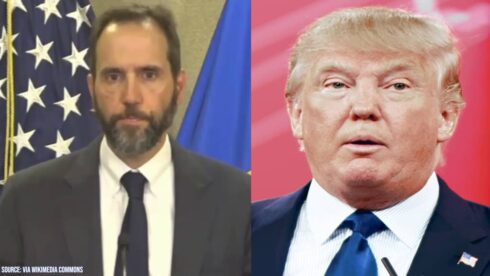Special Counsel Jack Smith has resigned from the U.S. Department of Justice after leading significant investigations into former President Donald Trump. Appointed in November 2022, Smith oversaw probes into Trump’s alleged attempts to overturn the 2020 election results and mishandling of classified documents. His resignation, effective January 10, 2025, follows the submission of his final report on these matters.
Jack Smith’s tenure was marked by the indictment of Trump on multiple felony counts, including obstruction of justice and violations of the Espionage Act. However, following Trump’s victory in the 2024 presidential election, these cases were dismissed or paused, adhering to the Justice Department’s policy against prosecuting a sitting president.
Legal and Political Implications
The resignation of Jack Smith underscores the intricate interplay between legal proceedings and political developments. Despite substantial evidence and serious charges, the reinstatement of Trump to the presidency has led to the cessation of prosecutions, highlighting the challenges faced by the Justice Department in maintaining judicial independence amid political shifts.
Jack Smith’s departure also raises questions about the future of the Justice Department’s approach to investigating high-ranking officials. The dismissal of these cases may set a precedent affecting the accountability of public officeholders, potentially influencing how similar cases are handled in the future.
Challenges in Report Disclosure
The release of Jack Smith’s final report has encountered legal obstacles. A Trump-appointed judge temporarily halted the publication of the report’s classified documents volume at the request of Trump’s co-defendants. However, prosecutors plan to release the election interference volume, pending court decisions. The Justice Department maintains that the Attorney General has the authority to release investigative reports, citing precedents from previous special counsel investigations.
This situation reflects the ongoing tension between transparency and legal constraints, as the public awaits comprehensive insights into the findings of Jack Smith’s investigations. The outcome of these legal deliberations will significantly impact public understanding of the events in question.
Reactions from Political Figures
President-elect Donald Trump has been vocal in his criticism of Jack Smith, labeling him as “deranged” and expressing intentions to terminate his position upon taking office. Jack Smith’s resignation preempts such actions, occurring just days before Trump’s inauguration. The president-elect has not commented directly on the resignation but has reiterated his campaign slogans on social media platforms.
This development has elicited varied responses from political circles, with some viewing it as a necessary conclusion to a contentious chapter, while others express concern over the implications for judicial independence and the precedent it sets for future administrations.
Jack Smith’s Professional Legacy
Jack Smith’s career has been distinguished by his roles in prosecuting war crimes and tackling public corruption. Prior to his appointment as Special Counsel, Jack Smith served as a prosecutor at the International Criminal Court in The Hague, focusing on cases involving grave international offenses. His tenure at the Justice Department, though marked by high-profile challenges, reflects his commitment to upholding the rule of law.
Colleagues and legal experts acknowledge Jack Smith’s dedication and the complexities he navigated during his service. His resignation marks the end of a significant chapter in the Justice Department’s efforts to address allegations of misconduct at the highest levels of government.
Future of Justice Department Investigations
With Jack Smith’s departure, the Justice Department faces critical decisions regarding the continuation of investigations into former President Trump and his associates. The intersection of legal imperatives and political realities presents ongoing challenges in pursuing accountability while maintaining institutional integrity.
The resolution of these cases will have lasting implications for the Justice Department’s role in enforcing the law impartially, regardless of political considerations. As the department transitions under new leadership, its approach to such high-stakes investigations will be closely scrutinized by both the public and legal community.














